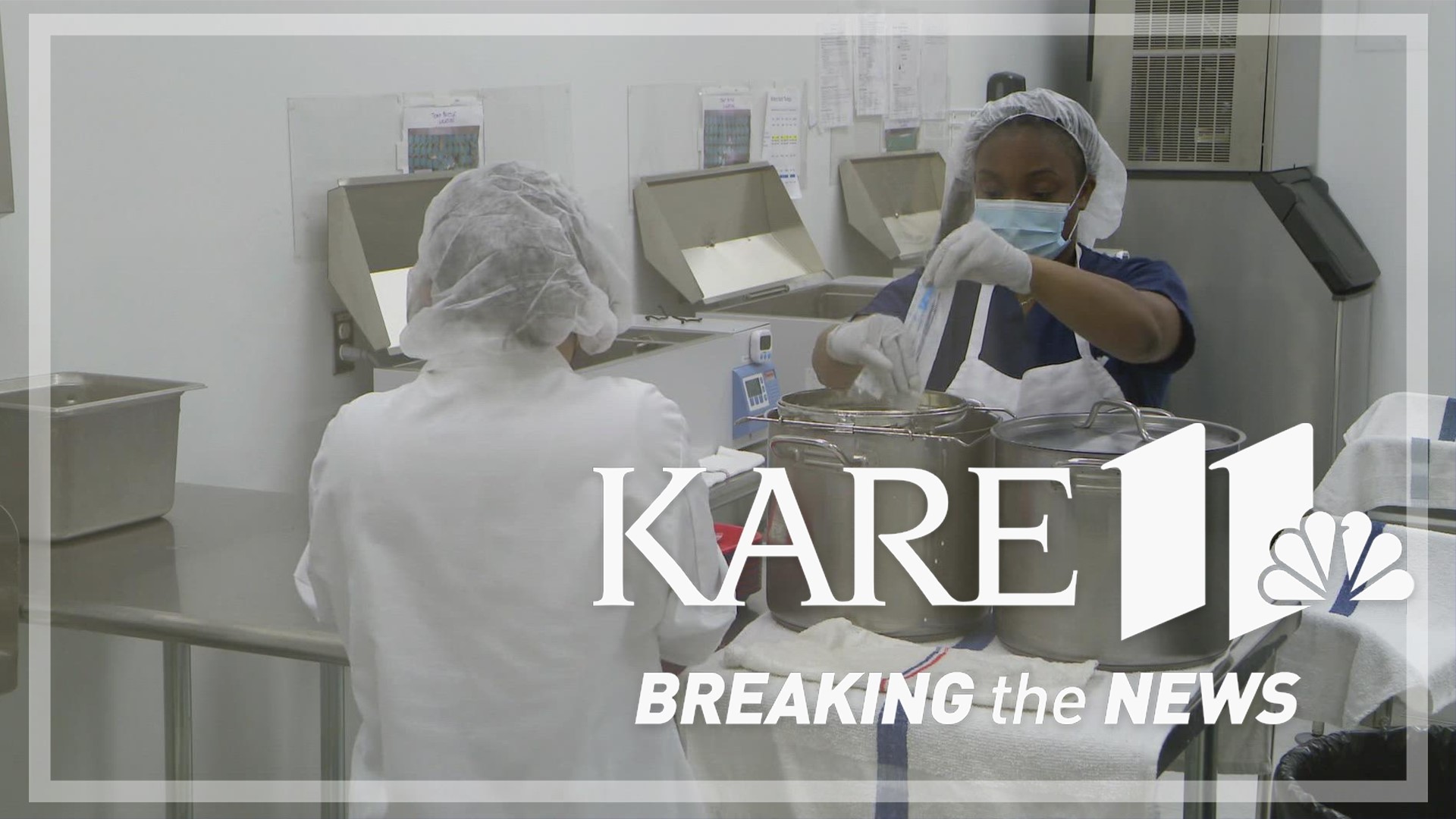GOLDEN VALLEY, Minn. — Parents are fed up with the national baby formula shortage. For many moms, breastfeeding isn't an option and there are various reasons why. For busy business owner Dara Beevas of Wise Ink Publishing, the pandemic impacted how she feeds her now 9-month-old son.
"Once I got COVID, my breast milk supply took a big dip and that's when we started supplementing with formula," Beevas said.
Like parents across the country, she's struggling to find her baby's favorite brand. It's been a problem for months.
"Last week, I went to two Targets," she said. "Couldn't find it. Then I went to a Walgreens. Also couldn't find it."
We don't know when the shortage will end. In the meantime, pediatricians are sharing some tips. Dr. Eric Barth from Allina Health's Ramsey clinic says, in most cases, it's okay to switch brands and even types of formula. For instance, babies who needed a sensitive formula as newborns might not need it at 6 or 9 months.
"There's an old saying, 'any port in a storm,'" Barth said. "Well, 'any port in a storm' means, in this case, any formula will do. The one exception might be … for babies who truly have a problem with either an allergy or an intolerance to regular formulas."
Pediatricians warn against diluting formula to make it last longer or making your own formula at home. As families navigate the shortage, Minnesota Milk Bank for Babies reports the demand for donated breast milk is also on the rise.
"Since we opened two years ago, we've seen increased demand for safe donor milk to the point where we are at our production capacity and are looking for a larger site," director Linda Dech said. "We receive generous donations from moms with extra milk to share. We pasteurize this donor milk."
Minnesota Milk Bank for Babies started as a small group of volunteer nurses and educators and is now an official nonprofit on a mission to improve infant health outcomes by providing donor milk when a mother’s milk is unavailable or in low supply. But the bank isn't exactly for families in need of a formula substitute. Rather, the milk is supplied primarily to NICUs in hospitals; an important piece of the puzzle in keeping babies fed.
"The community can help by supporting moms," Dech said. "They need the environments that are supportive of breastfeeding or breast milk feeding."
So what will it take to see formula back on the shelves? How does the shortage end? Rachna Shah, professor of Supply Chain and Operations at the University of Minnesota's Carlson School of Management, says the shortage will not end any time soon but says there are some things that might improve the situation over time.
"Of the 10 largest global manufacturers, only three are U.S. companies," Shah said. "From the manufacturing side, I think we absolutely need to bring in more production capacity. You'd be surprised to know that … substantial new production capacity in infant formula has not been added in recent years. So we need to bring in additional capacity."
Shah says to expect to see more online retailers offering formula and she advises consumers to pay attention to manufacturing details.
"The second thing that we might want to think about from FDA and regulatory purposes [is] how do we quality control as new suppliers are coming into the market?"
The recent recall of certain formulas is contributing to the shortage. Shah also points to pandemic checks. She says, while needed, when checks were distributed, more people qualified for WIC who previously did not. About 90% of baby formula is consumed by WIC-sponsored programs, she says.
As a consumer and mom-of-two, Beevas says the shortage has led her to become more aware of how much formula she was wasting. Now, instead of immediately giving her son a bottle when he's fussy, she asks herself more questions to determine whether her son is truly hungry or is actually just sleepy or in need of a diaper change.
"I don't want to be wasteful when so many people are in need," she said.

